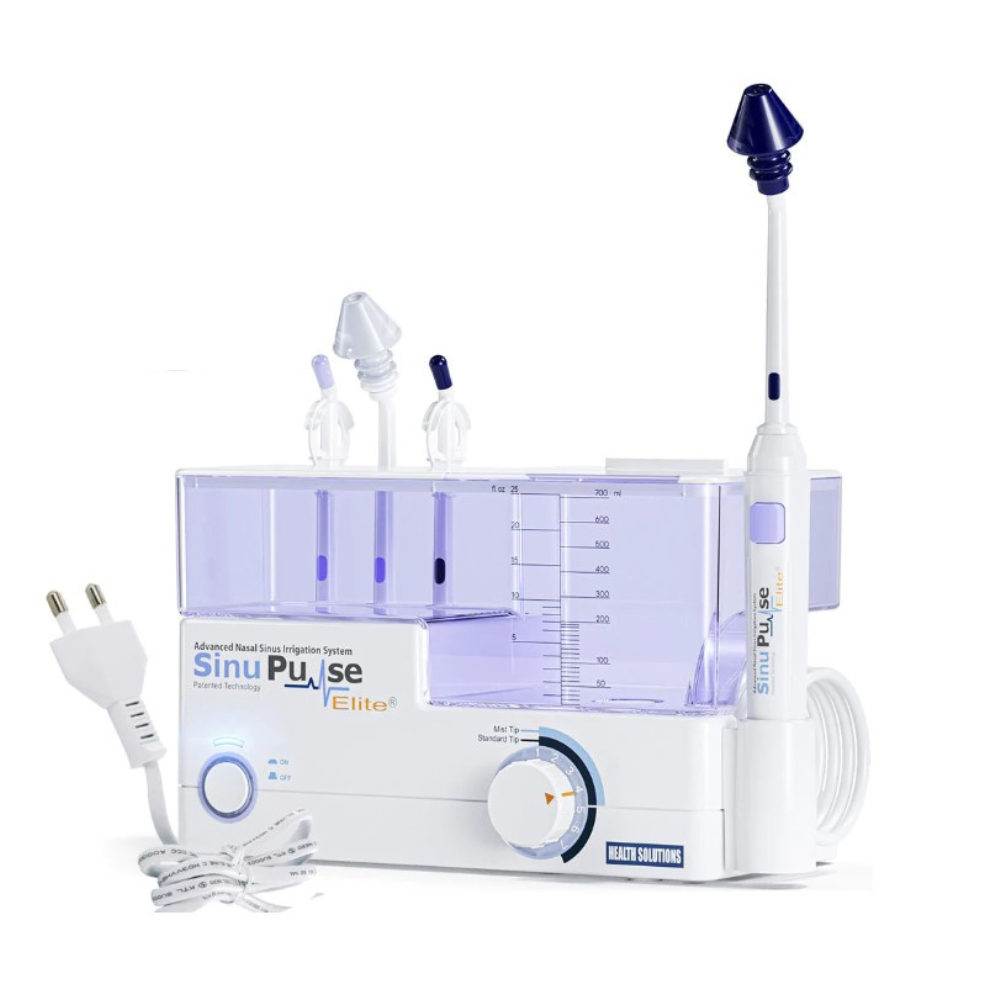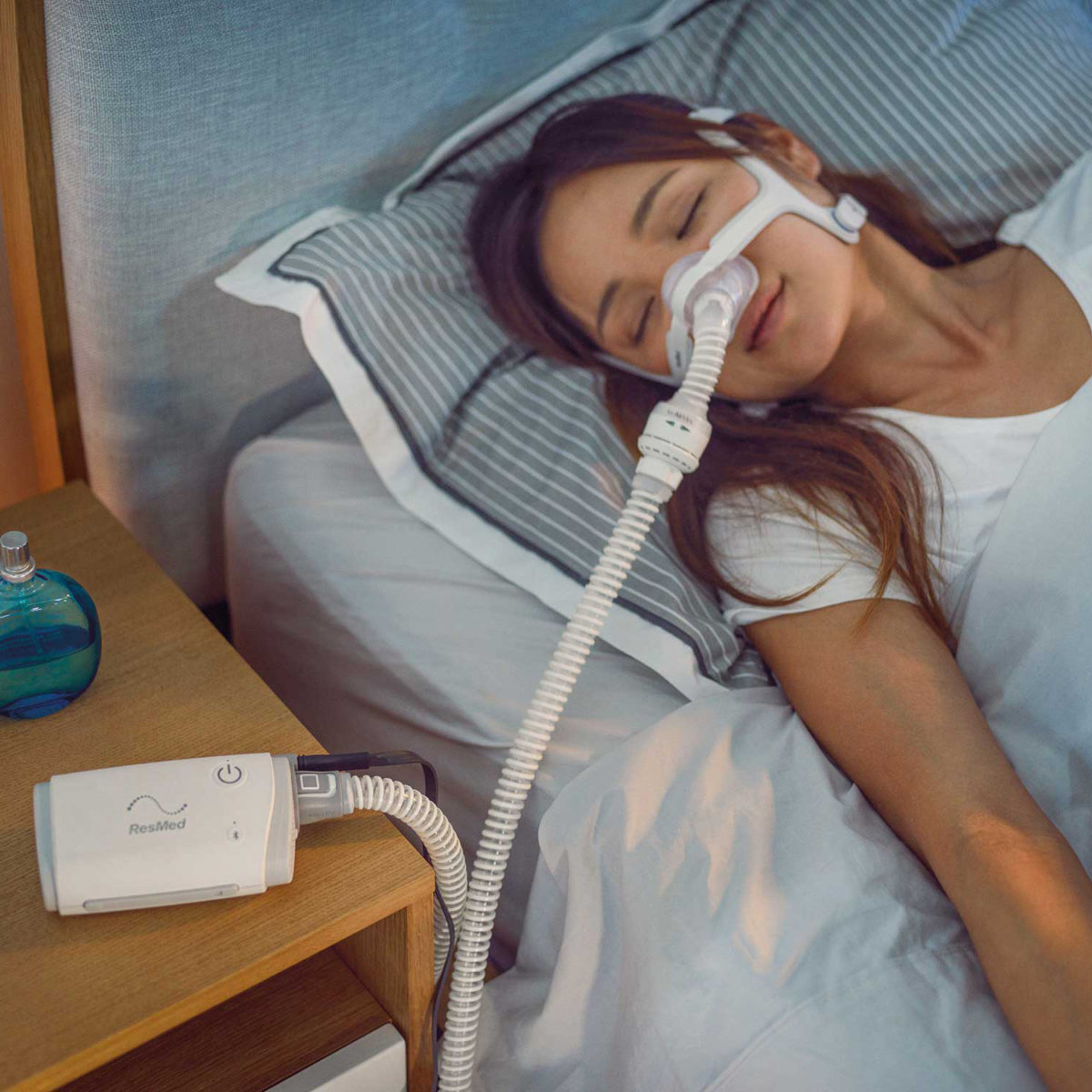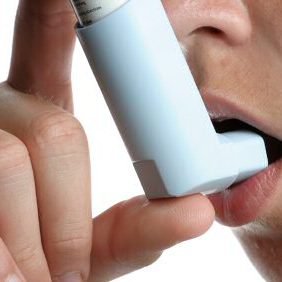All You Need To Know About Nasal Irrigation
What is Nasal Irrigation?
Nasal irrigation is a technique in which a solution of saline (salt water) is used to flush out the nasal passages. It can be used to help relieve the symptoms of nasal congestion, sinusitis, allergies, and other conditions that cause inflammation or excess mucus in the nose. There are several ways to perform sinus irrigation, including using a neti pot, a squeeze bottle, a nasal rinse cup or modern equipment designed to make the process faster and more comfortable. Some people also use a saline spray or a saline nasal gel. Nasal washing can be done at home and is generally considered safe, although it is important to use sterile water or a sterile saline solution to avoid infection.
To many people using a nasal rinse is a strange and unappealing concept, but as the benefits of it become clearer its popularity has started to increase rapidly. Nasal rinsing originated in India, where it has been used for centuries and is now considered as much a part of the daily routine as the brushing of teeth.
In this section of the website, you can find out exactly what nasal irrigation is, what it does and how it works. You can also find out about its history, the different methods used and the clinical research that has been conducted into its effectiveness. You can also find out more about the SinuPulse Elite, the device that is modernising the ancient technique, making it easier, more comfortable and more effective than ever before.
What does nasal irrigation do?
A nasal irrigation kit can help to relieve the symptoms of nasal congestion and other conditions that cause inflammation or excess mucus in the nose. It works by flushing out the nasal passages with a saline solution, which helps to thin and remove mucus, and reduce inflammation. By removing mucus and reducing inflammation, saline nasal rinse can help the cilia (tiny strands that help remove mucus) work more effectively to improve breathing and reduce the symptoms of nasal congestion, such as a stuffy nose, difficulty breathing through the nose, and a reduced sense of smell or taste. Nasal wash kits can also help to relieve the symptoms of sinusitis, allergies, and other conditions that cause inflammation or excess mucus in the nose. In addition, some people find that sinus irrigation helps to improve their overall sense of well-being and helps them to feel more clear-headed and alert.
A full list of conditions which can be treated with a nasal wash kit is provided further down this article.
How do you perform nasal irrigation?
Sinus irrigation is usually performed in one of three ways; using a netipot, a spray bottle or using modern methods, such as the SinuPulse Elite Nasal Irrigator.
You can find out more on our nasal irrigation methods guidance page.
| SinuPulse Elite | SinuPulse Traveler | Nasal Wash Bottles | Neti Pots | Navage Care | |
| No Expensive Refills – Use with Any Saline | Yes | Yes | Yes | Yes | No |
| Dozens of Published Medical Reports | Yes | Yes | Yes | Yes | No |
| Intellipulse Technology for Consistent Pulsating Rinse | Yes | Yes | No | No | No |
| Adjustable Pressure for Comfort & Control | Yes | Yes | No | No | No |
| Breakdown Biofilm, Remove Bacteria & Restore Ciliary Health | Yes | Yes | No | No | No |
| Dual Pulsating Spray Rinse Action to Moisturize & Cleanse | Yes | No | No | No | No |
| High Capacity Water Tank (700ml) for Large Volume Irrigation | Yes | No | No | No | No |
| Health Insurance Eligibility | Yes | No | No | No | No |
| Included Throat Irrigator & Tongue Cleaner | Yes | No | No | No | No |
| Cordless Design | No | Yes | Yes | Yes | Yes |
Conditions that can be treated with nasal irrigation
Sinus irrigation can be used to treat a wide range of nasal and sinus related conditions.
It is also used by professional sportspeople and those who scuba dive. There is limited scientific evidence to suggest that it can directly improve athletic performance. However, if nasal congestion is causing difficulty with breathing during exercise, sinus irrigation may indirectly improve performance by helping to alleviate this symptom.
Conditions treated include:
- Tinnitus
- Rhinitis
- Sinusitis
- Halitosis
- Snoring
- Trouble breathing
If you have one of this conditions and it is causing you to have restless sleep or issues during the day, regular nasal washing could help. Click on the links below to find out more.
Who shouldn’t use a nasal irrigator?
Nasal irrigation can relieve a number of discomforts, but it isn’t for everyone. You shouldn’t try a nasal wash kit if you:
- Have had surgery on your sinuses or ears
- Have an ear infection
- If your nostrils are completely blocked
- Have pressure in one or both of your ears.
How to irrigate your nose
Nasal irrigation, sometimes called a ‘nasal wash’ or ‘sinus rinse’ is a simple process to flush our our nasal passages with a salt-water solution. You can use a neti pot, a bulb syringe, a specially designed squeeze bottle or a device to irrigate your nose. The steps below outline the process you should follow.
- Prepare solution. If you’re using a container which arrived with saline powder, follow the instructions and prepare the solution. If you are using boiled water, make sure to boil the water for five minutes.
- Get the container ready. Pour the saline solution into the container. If you’re using boiled water, leave the water to cool until it’s lukewarm before using it.
- Get positioned. Lean over the sink, looking down. Turn your head to one side so that one ear is toward the sink and the other is toward the ceiling. Consider your position by thinking of how you want the water to flow. The water will flow into the top nostril and out of the bottom one.
- Irrigate. Breathe through your mouth. Place the container’s tip or spout inside your top nostril until you get a gentle seal. Tilt the container, squeeze the bottle or run the device so that water flows through your top nostril into your bottom one. You’ll feel the water trickle as it flows downward into the sink. You should continue until the solution is gone.
- Blow your nose. Once completed, blow you nose forcefully into a tissue to get rid of any remaining solution or mucus.















